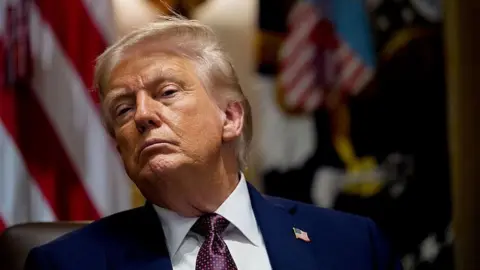On Wednesday morning, Hiroshima solemnly marked the 80th anniversary of the atomic bombing by the United States, a moment that continues to shape its identity and advocate for global peace. Japanese Prime Minister Shigeru Ishiba participated in the commemoration ceremony, which drew representatives from various nations. "Japan is the only nation that has suffered an atomic bombing in war," emphasized Hiroshima's mayor, Kazumi Matsui, during his speech at the city's Peace Memorial Park. "The Japanese government represents a people who aspire for genuine and lasting peace."
The bombings of Hiroshima and Nagasaki in 1945 claimed over 200,000 lives—many from the immediate devastation while others succumbed to radiation-related illnesses. Survivor Shingo Naito, who lost family members in the blast, shared his traumatic experience with students as they transformed his memories into artistic creations. "My father was badly burned and blinded by the blast. He couldn't even hold my hand," recounted Naito, reflecting on the haunting legacy of the bomb.
In 2024, the Nihon Hidankyo association, a collective of atomic bomb survivors, is set to be honored with the Nobel Peace Prize for their relentless advocacy against nuclear weapons. Speaking at the anniversary event, Mayor Matsui confronted the current global climate, marking an "accelerating trend toward military build-up" and the perceived necessity of nuclear arsenals for national defense. He urged a reevaluation of the nuclear Non-Proliferation Treaty amidst fears of it becoming increasingly ineffective, and implored the Japanese government to endorse the Treaty on the Prohibition of Nuclear Weapons.
Despite more than 70 countries ratifying this treaty, nuclear-armed nations like the US and Russia have remained steadfastly opposed, defending their arsenals as vital deterrents. Japan's stance on the issue remains contentious with some citizens advocating for disarmament while the government leans on its alliance with the US for security.
Protests advocating for the abolishment of nuclear arms were witnessed in the streets leading to the Peace Memorial Park. Survivor Saitoshi Tanaka, who endured severe health issues due to radiation exposure, expressed deep concern over current global conflicts. "Seeing the bloodshed in Gaza and Ukraine today conjures up my own suffering. We are living alongside weapons that could annihilate humanity many times over," he lamented. Tanaka's words resonate as he and his fellow survivors implore global leaders to take significant action towards nuclear disarmament, calling for a collective outrage and commitment to change.
The bombings of Hiroshima and Nagasaki in 1945 claimed over 200,000 lives—many from the immediate devastation while others succumbed to radiation-related illnesses. Survivor Shingo Naito, who lost family members in the blast, shared his traumatic experience with students as they transformed his memories into artistic creations. "My father was badly burned and blinded by the blast. He couldn't even hold my hand," recounted Naito, reflecting on the haunting legacy of the bomb.
In 2024, the Nihon Hidankyo association, a collective of atomic bomb survivors, is set to be honored with the Nobel Peace Prize for their relentless advocacy against nuclear weapons. Speaking at the anniversary event, Mayor Matsui confronted the current global climate, marking an "accelerating trend toward military build-up" and the perceived necessity of nuclear arsenals for national defense. He urged a reevaluation of the nuclear Non-Proliferation Treaty amidst fears of it becoming increasingly ineffective, and implored the Japanese government to endorse the Treaty on the Prohibition of Nuclear Weapons.
Despite more than 70 countries ratifying this treaty, nuclear-armed nations like the US and Russia have remained steadfastly opposed, defending their arsenals as vital deterrents. Japan's stance on the issue remains contentious with some citizens advocating for disarmament while the government leans on its alliance with the US for security.
Protests advocating for the abolishment of nuclear arms were witnessed in the streets leading to the Peace Memorial Park. Survivor Saitoshi Tanaka, who endured severe health issues due to radiation exposure, expressed deep concern over current global conflicts. "Seeing the bloodshed in Gaza and Ukraine today conjures up my own suffering. We are living alongside weapons that could annihilate humanity many times over," he lamented. Tanaka's words resonate as he and his fellow survivors implore global leaders to take significant action towards nuclear disarmament, calling for a collective outrage and commitment to change.


















